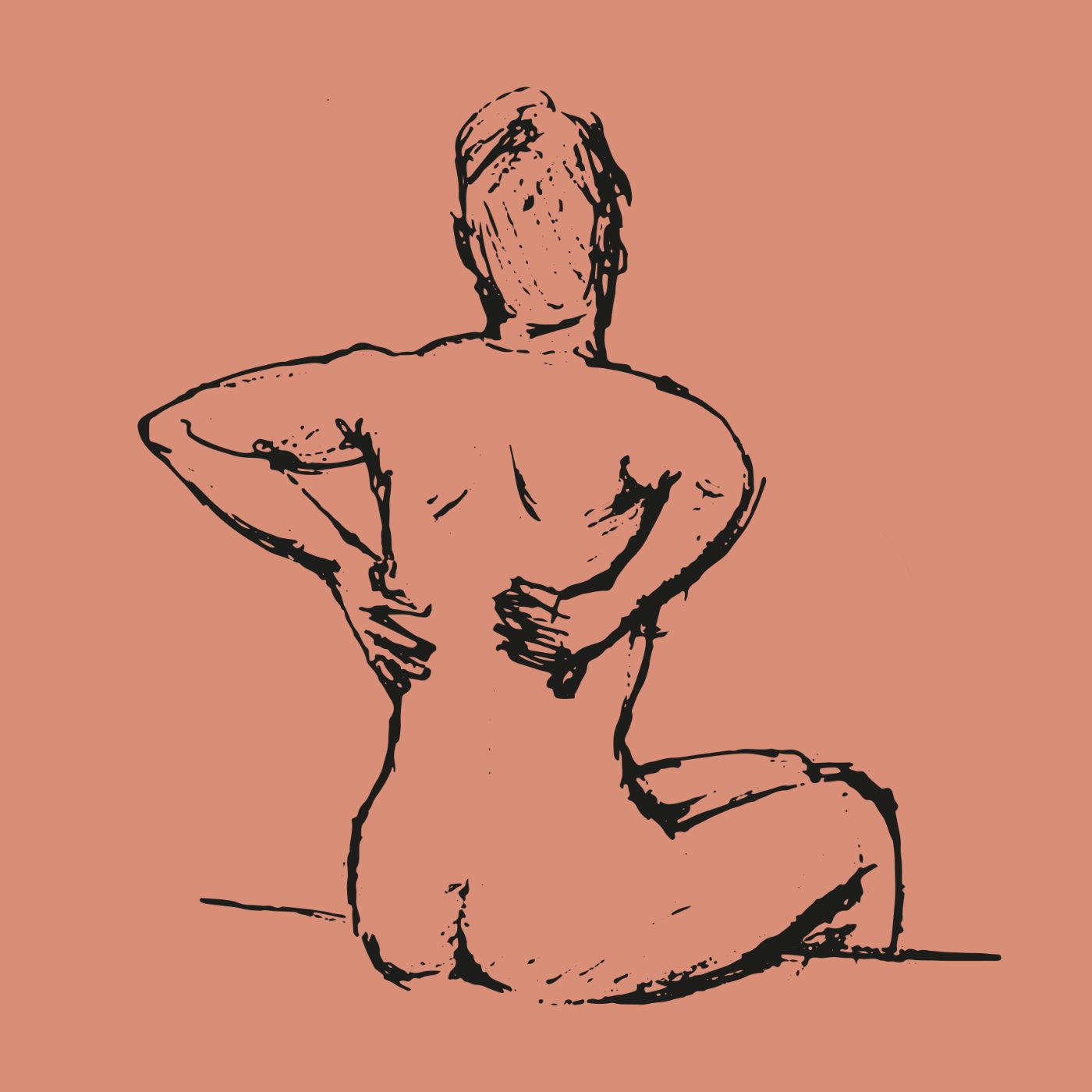Table of Contents
Table of Content
Do you want that perfect night's rest?
Loss of sleep has negative impacts such as:
- Stress
- Lack of motivation
- And more...
Here's the good news.
Sleep tips can make a real difference to your physical and mental health by improving the quality of your rest.
Good sleep helps your body function properly, lifts your mood, and keeps your mind sharp. Many of us have trouble sleeping and may suffer from conditions like insomnia or unpredictable sleep patterns, which can throw us off balance.
Simple tweaks, such as sticking to a regular bedtime, setting up a relaxing evening routine, and making your sleep space more comfortable, can work wonders.
Cutting down on caffeine and screen time before bed can also help. In today’s article, we’ll introduce effective tips to include in your sleep hygiene so you can start seeing energy-boosting results.
7 Sleep Tips to Help You Nail Your Nightly Routine
Developing a healthy sleep routine can take time, but its impact can be immediate if you commit to it.
Here are tips you can do as early as tonight.
Step 1: Stick to a Consistent Sleep Schedule
Keeping a regular sleep schedule by going to bed and waking up at the same time every day helps regulate your body's internal clock, making it easier to go into deep sleep and wake up naturally.
This consistency can improve the quality of your sleep, leaving you more refreshed and alert during the day.
To build up a consistent schedule, start with the following:
-
Shift your bedtime or wake-up time by 15 minutes earlier or later each day until you reach your desired schedule.
-
Avoid drastic changes to prevent disruption of your sleep pattern.
-
Create a relaxing pre-sleep routine to signal your body that it's time to wind down.
Step 2: Create a Relaxing Bedtime Routine
Establishing a calming bedtime routine can signal to your body that it's time to wind down. Consider activities like reading a book, practising meditation, or taking a warm bath to help you relax. These activities can ease your mind and prepare you for sleep.
We also suggest you avoid using your mobile devices before bedtime. The blue light emitted by phones, tablets, and computers can interfere with the production of melatonin, the hormone that regulates sleep.
Reducing screen time before bed can help ensure a more restful and uninterrupted night's sleep.
Step 3: Optimise Your Sleep Environment
Creating a comfortable sleep environment is key to restful nights.
-
Aim for a bedroom temperature around 18°C to promote better sleep.
-
Keep lighting dim to encourage melatonin production; use blackout curtains or an eye mask if needed.
-
Minimise noise with earplugs or a white noise machine to block out disturbances.
-
Choose a mattress that supports your preferred sleeping position and cushions pressure points.
-
Select pillows that keep your head and neck aligned with your spine.
-
Test different mattress and pillow options to find the best fit for your needs.
Step 4: Watch What You Eat and Drink Before Bed
What you consume before bed can significantly impact your sleep quality. Caffeine and alcohol are known disruptors; caffeine can keep you awake, while alcohol may initially make you drowsy but can lead to fragmented sleep. Heavy meals close to bedtime can also cause discomfort and disrupt rest.
Instead, opt for light snacks that might aid sleep. Foods rich in tryptophan, like bananas or a small serving of yoghurt, can promote relaxation.

A warm glass of milk or a handful of nuts can also be helpful. Choosing the right snacks can contribute to a better night's sleep.
Step 5: Get Moving During the Day
Regular exercise can greatly enhance sleep quality by helping you fall asleep faster and enjoy deeper rest. Physical activity reduces stress and anxiety, common barriers to good sleep.
Your workout’s timing can also affect your sleep. Exercising in the morning or early afternoon is ideal, as it helps regulate your body's natural sleep-wake cycle.
If you prefer evening workouts, aim to finish at least a few hours before bedtime to allow your body time to wind down. Finding the right balance can contribute to more restful nights.
Step 6: Manage Stress and Anxiety
Effectively managing stress and anxiety can significantly improve your sleep. Techniques such as journaling, deep breathing exercises, or practising mindfulness can help calm your mind before bed.
Journaling allows you to express and release worries, while deep breathing and mindfulness can relax your body and focus your thoughts.
To tackle racing thoughts at bedtime, consider setting aside time earlier to address concerns. Creating a 'worry list' can help compartmentalise stress, making it easier to let go when it's time to sleep.
Practising these techniques can promote a more peaceful and restorative night's rest.
Step 7: Know When to Seek Help
If sleep issues persist despite trying various strategies, it might be time to seek professional help. Signs that warrant attention include chronic insomnia, excessive daytime sleepiness, or if sleep disturbances significantly impact your daily life and well-being.
Support can be found in the UK through your GP, who may refer you to a sleep specialist. Additionally, organisations like the Sleep Charity offer resources and advice.
Online services such as Sleepstation provide guided cognitive behavioural therapy for insomnia (CBT-I). Reaching out for help can be an important step towards achieving better sleep.
Enhance Your Sleep Naturally: Exploring Complementary Aids for Restful Nights
Using complementary products or sleep medicine can be a helpful addition to improving sleep quality. Here's a look at some popular options from our KLORIS collection and the health industry in general:
CBD Balm and Oil
-
Description: Cannabidiol (CBD) is a compound derived from the cannabis plant that’s known for its calming properties. It doesn't produce a high, as it lacks THC, the psychoactive component.
-
Usage: Applying CBD balm topically or using CBD oil orally may help reduce anxiety and promote relaxation, making it easier to fall asleep.
Herbal Teas
-
Description: Many herbal teas, such as chamomile, valerian root, and lavender, are known for their soothing properties.
-
Usage: Enjoying a warm cup of herbal tea an hour before bed can help relax the mind and body, easing the transition to sleep.
Essential Oils
-
Description: Essential oils like lavender, bergamot, and sandalwood are often used in aromatherapy for their relaxing effects.
-
Usage: Diffusing these oils in your bedroom or adding a few drops to a warm bath can create a calming atmosphere conducive to sleep.
Magnesium Supplements
-
Description: Magnesium is a mineral that plays a role in sleep regulation by helping to relax muscles and calm the nervous system.
-
Usage: Taking a magnesium supplement or topical magnesium lotion may aid in improving sleep quality.
Sleep Masks and Weighted Blankets
-
Description: Sleep masks block out light, while weighted blankets provide gentle pressure that can reduce anxiety.
-
Usage: These products can create a more comfortable sleeping environment, promoting more profound and more restful sleep.
Sleep Patches
-
Description: Sleep patches typically contain natural ingredients like melatonin, lavender, or magnesium, designed to promote relaxation and improve sleep quality.
-
Usage: Applied to the skin before bedtime, these patches release ingredients gradually, helping to ease you into a restful sleep.
While these complementary products can support better sleep, it's essential to consider individual needs and consult with a healthcare professional if necessary, especially when trying new supplements or products.
The Long-Term Effects of Sleep Deprivation
Sleep deprivation isn’t just about feeling groggy or irritable the next day. When poor sleep becomes a regular part of your life, it can have serious, long-term consequences that may develop into serious sleep disorders.

Let’s break down its impact on different aspects of your overall health:
1. Impact on Physical Health
-
Weakened Immune System
Chronic sleep deprivation can suppress your immune system, making you more susceptible to infections like colds, flu, and long-term illnesses.
For example, studies have shown that people who sleep less than six hours a night are more likely to catch a cold than those who get seven hours or more.
-
Increased Risk of Chronic Conditions
Lack of sleep is linked to a higher risk of developing serious health issues, including: -
Heart disease: Poor sleep can lead to high blood pressure, inflammation, and elevated stress hormones, all of which strain the heart.
-
Diabetes: Sleep deprivation affects insulin sensitivity, increasing the risk of type 2 diabetes.
-
Obesity: Sleep loss disrupts hormones that regulate hunger (ghrelin and leptin), often leading to overeating and weight gain.
-
Accelerated Ageing
Chronic sleep deprivation can affect your skin’s health, leading to premature ageing, dark circles, and a dull complexion. It also slows down the body’s ability to repair itself.
2. Mental Health Consequences
-
Mood Disorders
Sleep and mental health are deeply connected. Long-term sleep deprivation can contribute to anxiety, depression, and mood swings. For instance, research has shown that people with insomnia are five times more likely to develop depression. -
Cognitive Decline
Poor sleep affects memory, concentration, and decision-making. Over time, this can lead to difficulties at work or school and even increase the risk of neurodegenerative diseases like Alzheimer’s. -
Emotional Instability
Sleep deprivation makes it harder to regulate emotions, leading to irritability, frustration, and even heightened conflict in relationships.
3. Impact on Daily Life and Productivity
-
Reduced Performance
Sleep deprivation slows reaction times and impairs judgment, Whether at work, school, or behind the wheel. For example, driving while sleep-deprived can be as dangerous as driving under the influence of alcohol. -
Strained Relationships
Chronic tiredness can make you less patient and more prone to arguments, affecting your personal and professional relationships. -
Lower Quality of Life
Over time, the cumulative effects of sleep deprivation can rob you of the energy and motivation to enjoy hobbies, socialise, or even complete daily tasks.
Building Healthy Sleep Habits: How Long Does It Take?
Developing healthy sleeping habits typically takes several weeks of consistent effort and adjustment.
The time required can vary depending on individual circumstances, such as the severity of existing sleep issues and lifestyle.
Generally, it takes about three to four weeks to establish a new sleep routine, as this period allows the body's internal clock to adjust and align with the new schedule.
During this time, maintaining consistency is key—going to bed and waking up at the same time daily helps reinforce the habit. Gradual changes, such as adjusting bedtime by small increments, can also ease the transition.
Patience and persistence are essential, as the body needs time to adapt to these new routines for lasting improvements in sleep quality.
Try KLORIS Today!
Improving your sleep involves a series of practical steps. Start with a consistent sleep schedule to regulate your body's internal clock.
Create a restful environment to signal it's time to wind down. Optimise your sleep routine with the right temperature, lighting, and bedding.
Be mindful of what you eat and drink before bed to prevent disruptions. Regular exercise enhances sleep quality and manages stress through techniques like journaling and mindfulness.
Finally, know when to seek professional help if sleep issues persist. Together, these steps can lead to more restful and rejuvenating nights.
Ready to get enough quality sleep regularly? Check out the range of sleep-enhancing products at KLORIS and experience the difference.




